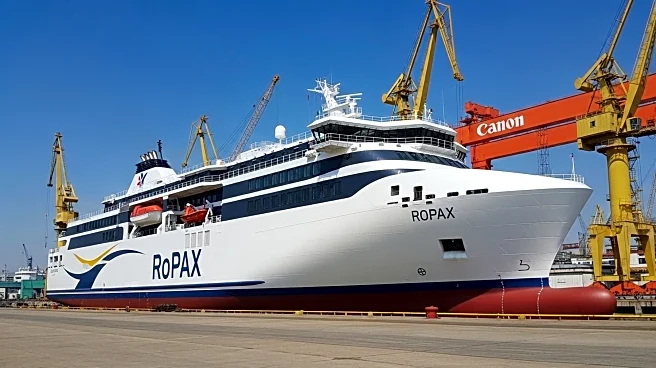What's Happening?
The Scottish government has shortlisted four international shipyards for a $270 million contract to build two new RoRo/passenger ferries for Caledonian Maritime Assets Limited (CMAL). The shortlisted companies include Turkish shipyards Cemre and Tersan, China's GSI, and Stena UK with its partner CMJL (Weihai). The procurement process began in June, aiming to have the new ships under contract by 2026. The ferries will serve the Northern Isles network, enhancing freight capacity and passenger accommodation. The contract is expected to be awarded in February next year, with the ferries entering service in 2029.
Why It's Important?
The decision to shortlist international shipyards for Scotland's ferry contract highlights the global nature of maritime procurement and the competitive landscape of shipbuilding. The new ferries will significantly enhance the efficiency and reliability of services in the Northern Isles, supporting local businesses and communities. The increased freight capacity and passenger accommodation address long-standing demands for improved transportation infrastructure. However, the absence of British shipyards in the shortlist raises concerns about domestic industry capabilities and competitiveness.
What's Next?
The tender process will proceed, with the contract expected to be awarded in February 2026. The selected shipyard will begin construction, with the ferries anticipated to enter service by 2029. The Scottish government and CMAL will continue to engage with stakeholders to ensure the new vessels meet regional needs. The focus will be on integrating advanced technologies and sustainable practices in the ferry design to align with environmental goals and operational efficiency.
Beyond the Headlines
The reliance on international shipyards for this contract may prompt discussions about the future of the UK shipbuilding industry and its ability to compete globally. The project underscores the importance of investing in domestic capabilities and innovation to secure future contracts. Additionally, the integration of shore power upgrades in the project reflects a commitment to sustainability and reducing carbon emissions in maritime operations.








